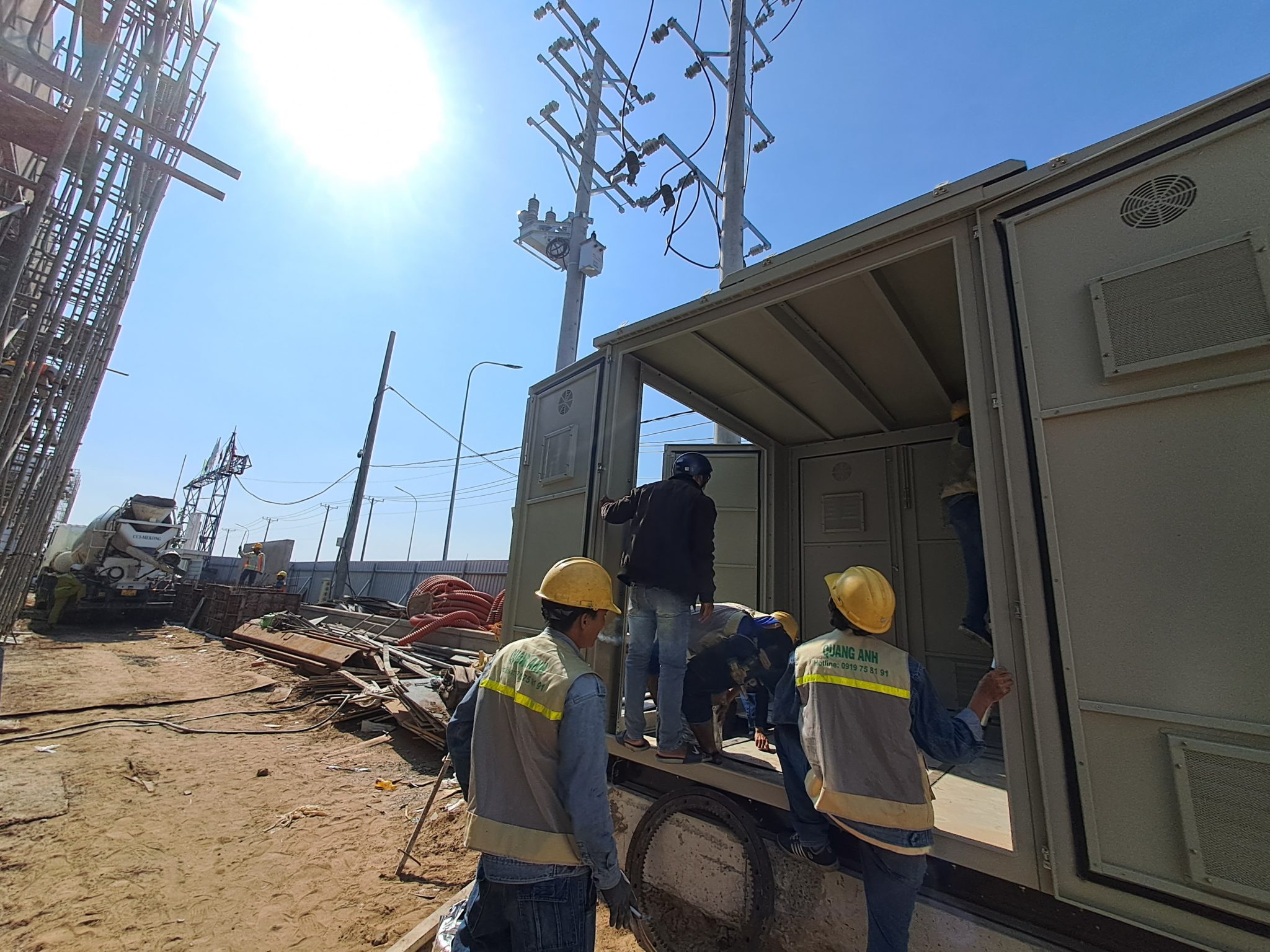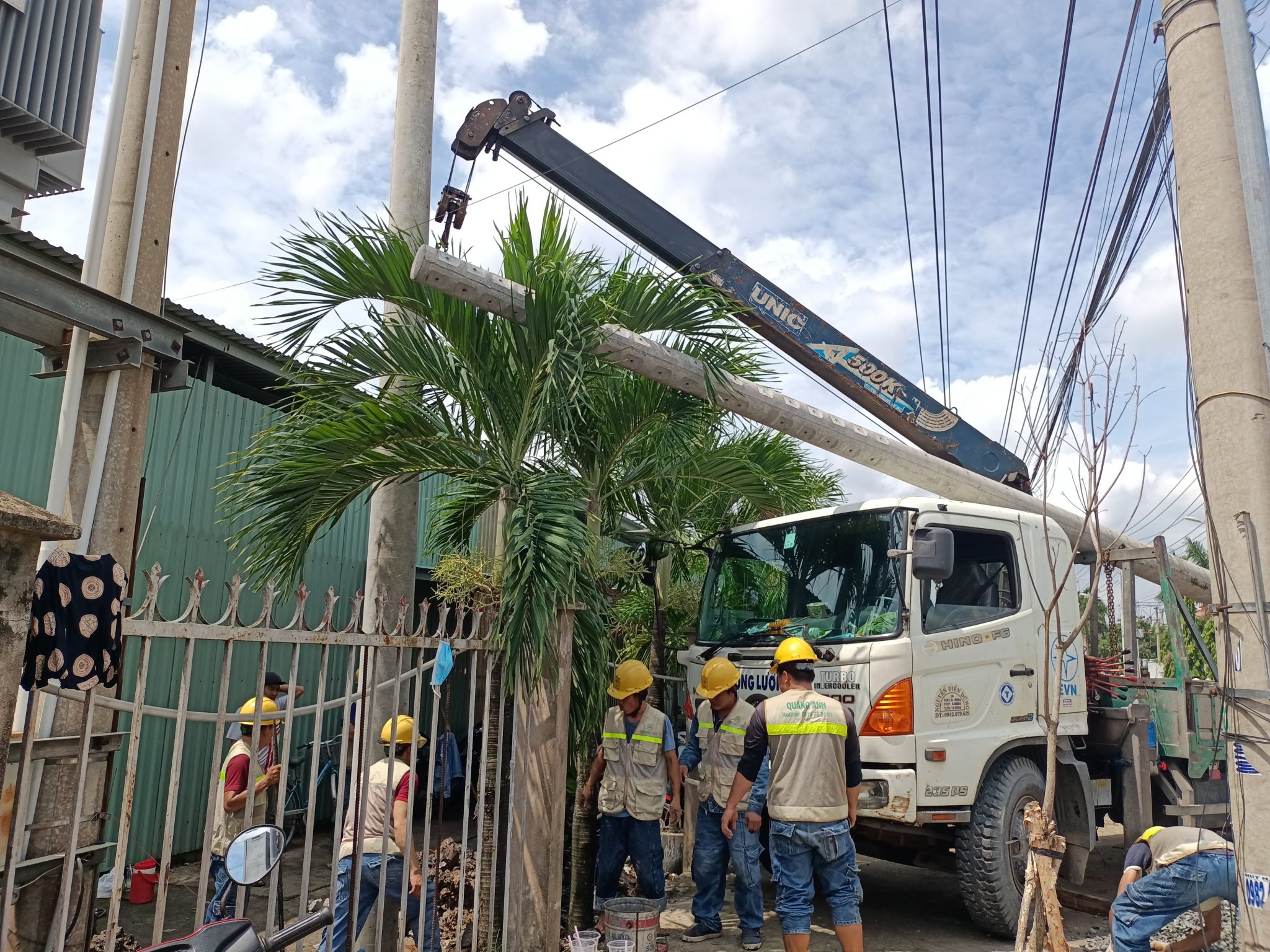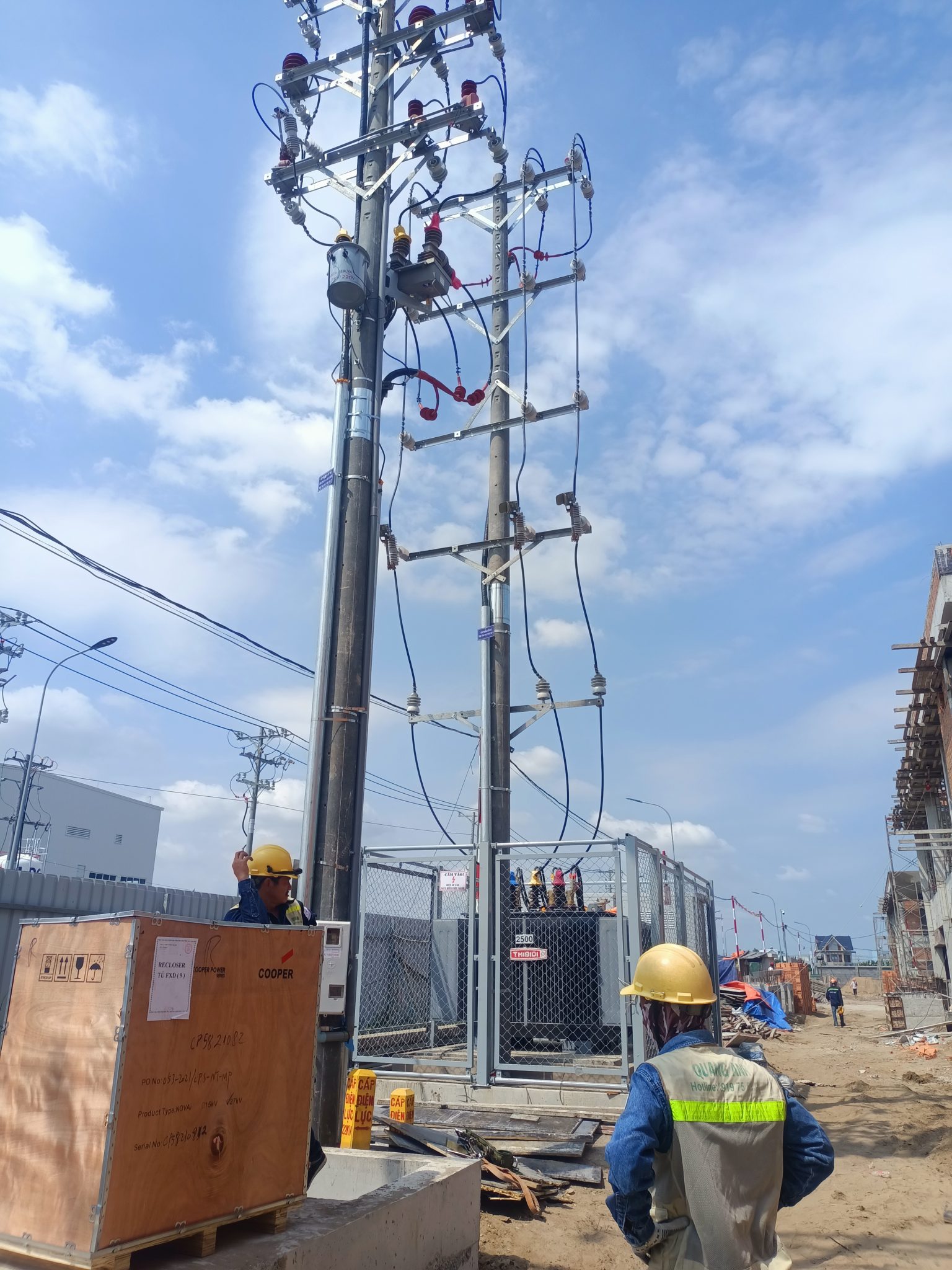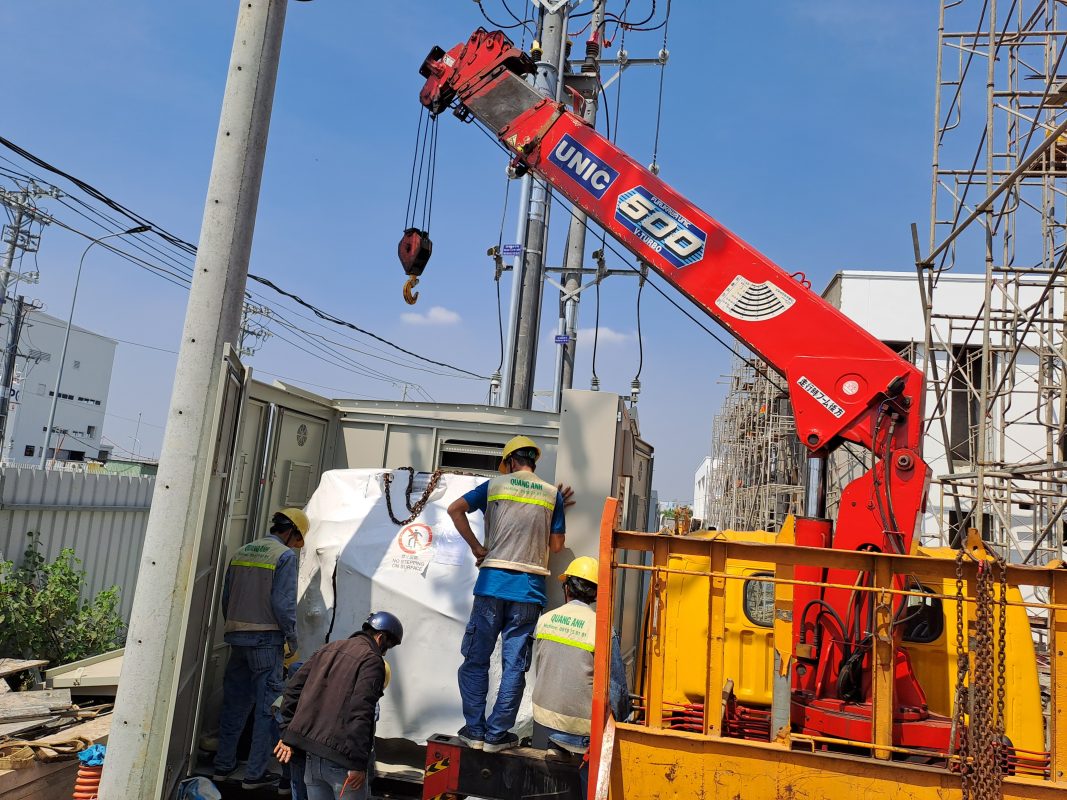The cost to invest in a 120kW electric vehicle (EV) charging station involves several components such as equipment, installation, site preparation, and operations. Let’s explore each aspect in detail to understand the required investment.
Essential Equipment for 120kW EV Charging Stations
The charging unit itself is the core of a 120kW EV charging station. The equipment costs range between 415 to 420 million VND for a single charging post. Some sources suggest prices can range from 200 to 350 million VND for a 120-180kW DC fast charger, potentially supporting dual ports. These costs vary based on brand, features, and technical standards. A typical 120kW charger supports multiple EV types, providing fast and secure charging, forming the backbone of an efficient charging setup.
To establish an effective EV charging station, precise equipment selection is crucial to meet the 120kW capacity. The central component is the direct current (DC) charger, integral for directly powering the vehicle battery without an onboard converter, thus shortening charging times.
Integrated versatile connectivity systems like CCS 2 and CHAdeMO accommodate a variety of EV models, enabling simultaneous service to multiple vehicles. Additionally, a smart charging management system ensures power is adjusted and monitored according to battery capacity, protecting equipment by cutting off power when the battery is full.
To ensure user and equipment safety, protective measures such as overload protection, circuit breakers, leakage prevention, and water resistance are included. For high-capacity stations, optional cooling systems maintain operational temperatures, safeguarding from overheating.
A 380V three-phase power source is necessary, accompanied by high-capacity cables to handle large loads, ensuring stable power supply. Furthermore, ISO 15118 or IEC 61851 standards are implemented for effective vehicle interaction, enhancing security during charging.
Charging station equipment must withstand various environmental conditions, suitable for indoor and outdoor installation with robust enclosures to protect against weather elements and impacts.

Installation and Infrastructure Development for EV Charging Stations
The construction of a 120kW EV charging station infrastructure involves numerous careful steps. Installation and infrastructure costs usually range from 300 to 500 million VND. The construction process includes setting up transformers, wiring systems, electrical cabinets, and other infrastructure such as canopies and signage. Electrical safety costs like lightning protection are also essential, ensuring the safe operation of the charging station.
The installation and development process is a series of appropriate steps to guarantee stable and safe operation for the EV electrical system. Initially, engineers conduct site assessments and evaluate the needs at the proposed location, aiding the determination of the scale and technical specifications for the charging station.
Subsequently, calculating capacity and system design plays a crucial role. Engineers must assess capacity based on surveys and real demands. Choosing suitable equipment like cables, charging ports, switchboards, and protective devices (brands like ABB, Schneider, Eaton) to meet safety and efficiency standards is vital. This phase involves electrical system schematics and detailed installation layouts.
Preparing the cost estimates involves calculating material, equipment, labor, and other incidental expenses to ensure that the investment plan for charging station construction is financially feasible.
Adhering to technical and legal safety standards and regulations is paramount at every stage. Systems must comply with fire safety regulations as per Decree 136/2020/ND-CP, particularly for indoor stations or areas prone to fire hazards. Conversely, outdoor installations must meet electrical safety and environmental standards.
During installation, workers position equipment according to design, standardly connect electrical circuits, and install protective devices like lightning rods, and emergency power cuts. It is essential to verify data transmission systems, if any, to ensure synchronized connectivity.
Upon completion, testing, inspection, and trial operations are conducted to ensure system efficiency, inspecting all equipment, including electrical safety functions, before official operation.
Finally, regular maintenance, operation, and monitoring are crucial to ensure the EV charging station system operates steadily and prevents issues. Implementing remote monitoring technology enhances charging station management efficiency.
Installing EV charging stations requires strict adherence to planning and technical standards, ensuring safety and optimizing capacity use, especially for stations using solar energy.

Operational and Maintenance Costs for 120kW EV Charging Stations
Maintenance and operational costs are critical factors influencing the effectiveness of a 120kW EV charging station. Maintenance of equipment may require about 3 to 10 million VND/month per charging post. Moreover, monthly electricity charges can be significant, estimated between 2,000 to 6,000 VND/kWh. Charging station management software is also vital, with costs ranging from 50 to 200 million VND annually. Managing these expenses effectively is key to optimizing charging station operation.
Operating costs for a 120kW EV charging station are crucial aspects that decision-makers need to meticulously evaluate to achieve optimal economic results. Main factors influencing costs include:
- Electricity consumption: This expense represents a significant portion of the operating cost. Electricity prices at charging stations range from 3,000 to 10,000 VND/kWh, depending on agreements and consumption scale.
- Equipment maintenance: Regular maintenance of components such as three-phase systems, 120kW DC charging ports, and management software is critical. Routine maintenance helps minimize breakdowns and extends equipment life.
- Fire and safety compliance: Outdoor charging stations may have lower fire safety expenses compared to indoor stations, which require additional safety measures.
Other factors may also impact operating costs:
- Charging station location: Rental costs in major cities are typically higher, affecting overall expenses.
- Electrical infrastructure status: Upgrading lines or burying electrical systems may significantly increase investment and operational costs.
- Three-phase power provisioning: A stable electrical system with backup capacity is essential to ensure continuous station operation.
Ultimately, the payback period for investing in a 120kW EV charging station is estimated at 2-3.5 years when operational costs are effectively managed. This is a critical factor for investors to assess long-term benefits when establishing this charging station system.

Investing in a 120kW EV charging station offers numerous technical and strategic advantages. It not only promotes renewable energy use but also provides potential business opportunities by effectively optimizing operational and maintenance costs.
Contact QuangAnhcons via hotline +84 9 1975 8191 for detailed consultation on investing in a 120kW EV charging station.
QuangAnhcons offers expert advice and installation services for 120kW EV charging stations, with professional processes and optimized costs to ensure long-term benefits for clients.
[contact-form-7 id="7239967" title="Contact form 1"]


Related Posts
Tay Ninh Solar Power Planning: Technical Framework, Grid Interconnection, and Rollout Roadmap
Technical overview of solar planning in Tay Ninh: irradiation, grid capacity, permitting, design, operations, and [...]
Dec
Binh Duong Solar Planning: Regulatory Framework, Grid Interconnection, and an Implementation Roadmap for Factories and Industrial Parks
An overview of Binh Duong solar planning: legal framework, interconnection, design, risk management, and an [...]
Dec
Solar Farm Repair: O&M Workflow, IV Curve Diagnostics, Thermography, Inverter Service and Utility-Scale Safety
A utility-scale solar farm repair plan centered on O&M, IV curves, thermal imaging, inverter service, [...]
Dec
Dong Nai Solar Power Plan 2023–2025: Tri An 1,029 MW, Grid Upgrades and the DPPA Pathway
A complete look at Dong Nai’s solar power plan: Tri An 1,029 MW, irradiation potential, [...]
Nov
Quang Ngai Solar Power Plan 2024–2030: Legal Framework, Irradiance Potential, and Development Roadmap
A complete look at Quang Ngai’s solar power plan: capacity targets, irradiance (PVout), development zones, [...]
Nov
Solar Damage Assessment Services: On-Site Procedures, EL/IV/Thermography Testing & Compliance with Standards
Discover IEC/UL/NEC standard solar damage assessment processes: on-site evaluation, EL and IV curve testing, thermal [...]
Nov
Comprehensive Package Estimate for a 1800MVA 500kV Substation: Scope, Configuration 3x600MVA, Standards and Timeline Management
An overview of the 1800MVA 500kV substation estimate: construction scope, configuration 3x600MVA, GIS/AIS, SCADA, standards, [...]
Nov
Factory Electrical Systems: Comprehensive Design and Implementation Guide
Discover the detailed and safe process of factory electrical systems design and implementation. [...]
Oct
Blueprints Required for Factory Construction Permits
Discover the necessary blueprints in factory construction permit applications, from floor plans to electrical and [...]
Oct
What Are the Requirements for a Factory Construction Permit? A Comprehensive Guide
Explore the documentation and steps needed to secure a factory construction permit for streamlined project [...]
Oct
Factory Construction Permit Procedures in Vietnam: Essential Guidelines and Documents
Learn the procedures for securing a factory construction permit in Vietnam, focusing on document preparation [...]
Oct
Key Steps in the Factory Construction Process
Discover the essential steps and requirements for building factories. [...]
Oct
Comprehensive Electrical Substation Solutions by Quanganhcons
Discover the cutting-edge electrical substation solutions offered by Quanganhcons for industrial applications. [...]
Oct
Investment Costs for a 1MWp Solar Power System and Influencing Factors
Explore the investment costs for a 1MWp solar power system in Vietnam and the influencing [...]
Sep
QuangAnhcons: Elevating Wind Energy Solutions
Explore QuangAnhcons' leadership in wind energy and renewable solutions in Vietnam. [...]
Sep
Electrical Contractor Strategies at Becamex Industrial Park
Discover the strategic advancements and partnerships of the electrical contractor at Becamex Industrial Park. [...]
Sep
Investment Insights for 1MW Wind Energy in Vietnam: Costs and Opportunities
Discover the detailed analysis of costs and opportunities for investing in 1MW wind energy projects [...]
Sep
Advanced Electrical Installation Solutions by QuangAnhcons
Explore advanced electrical installation solutions and modern technology with QuangAnhcons. [...]
Sep
Enhancing Industrial Electrical Services with Quanganhcons
Discover Quanganhcons' expertise in industrial electrical services, offering efficient and sustainable power systems. [...]
Sep
Comprehensive MEP Solutions by QuangAnhcons: From Design to Maintenance Excellence
Discover optimal MEP solutions with QuangAnhcons, dedicated to excellence from design through maintenance. [...]
Sep